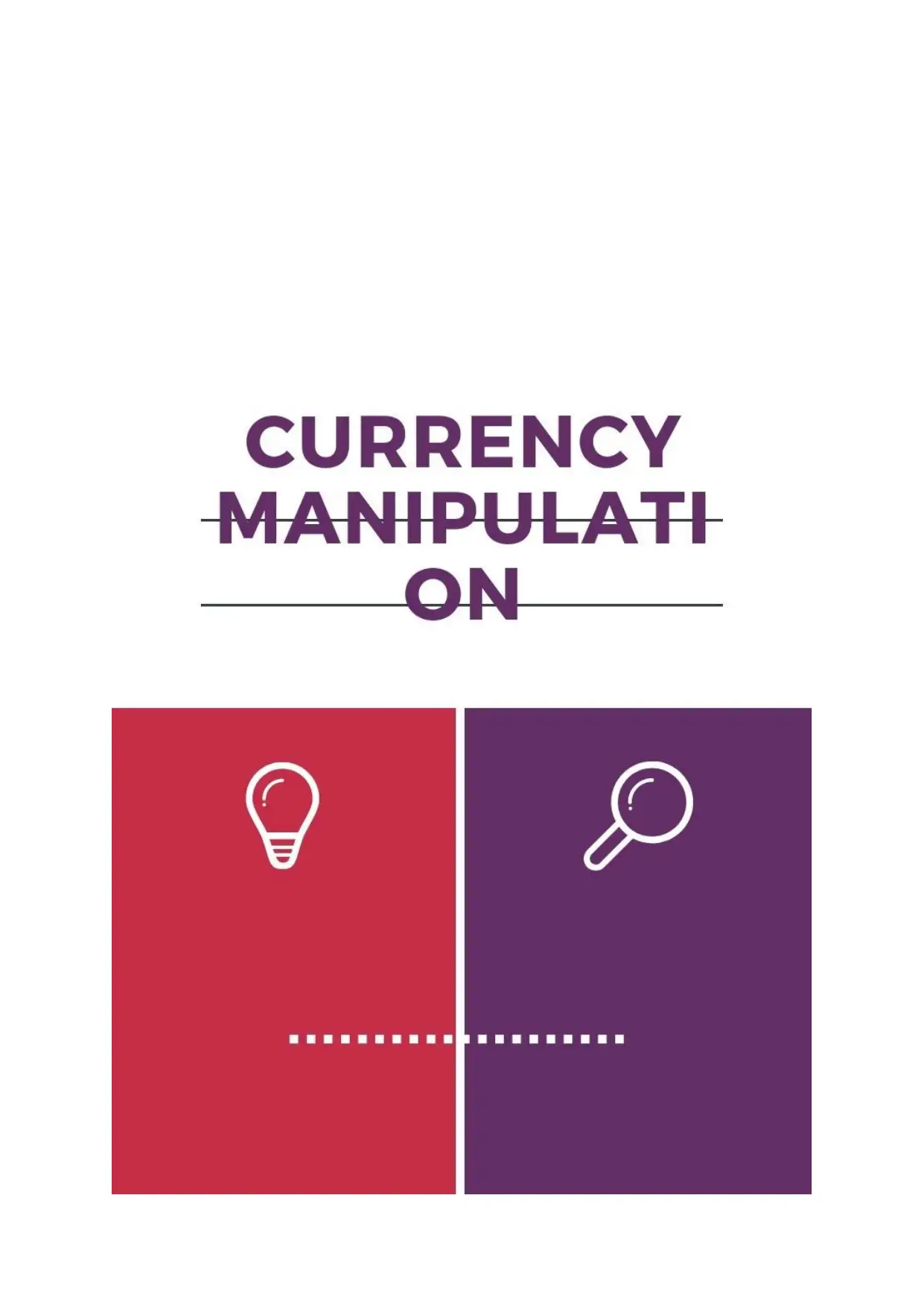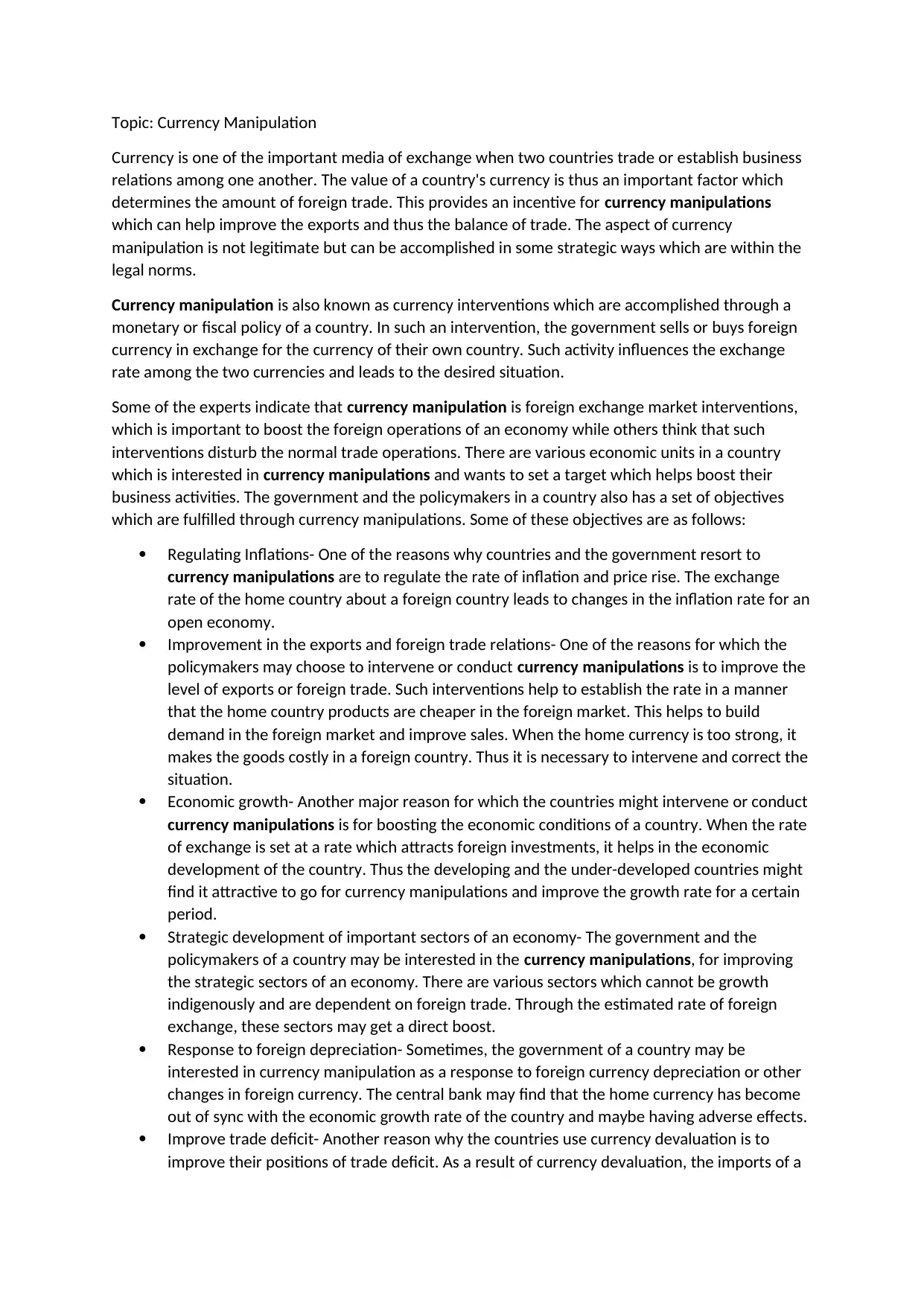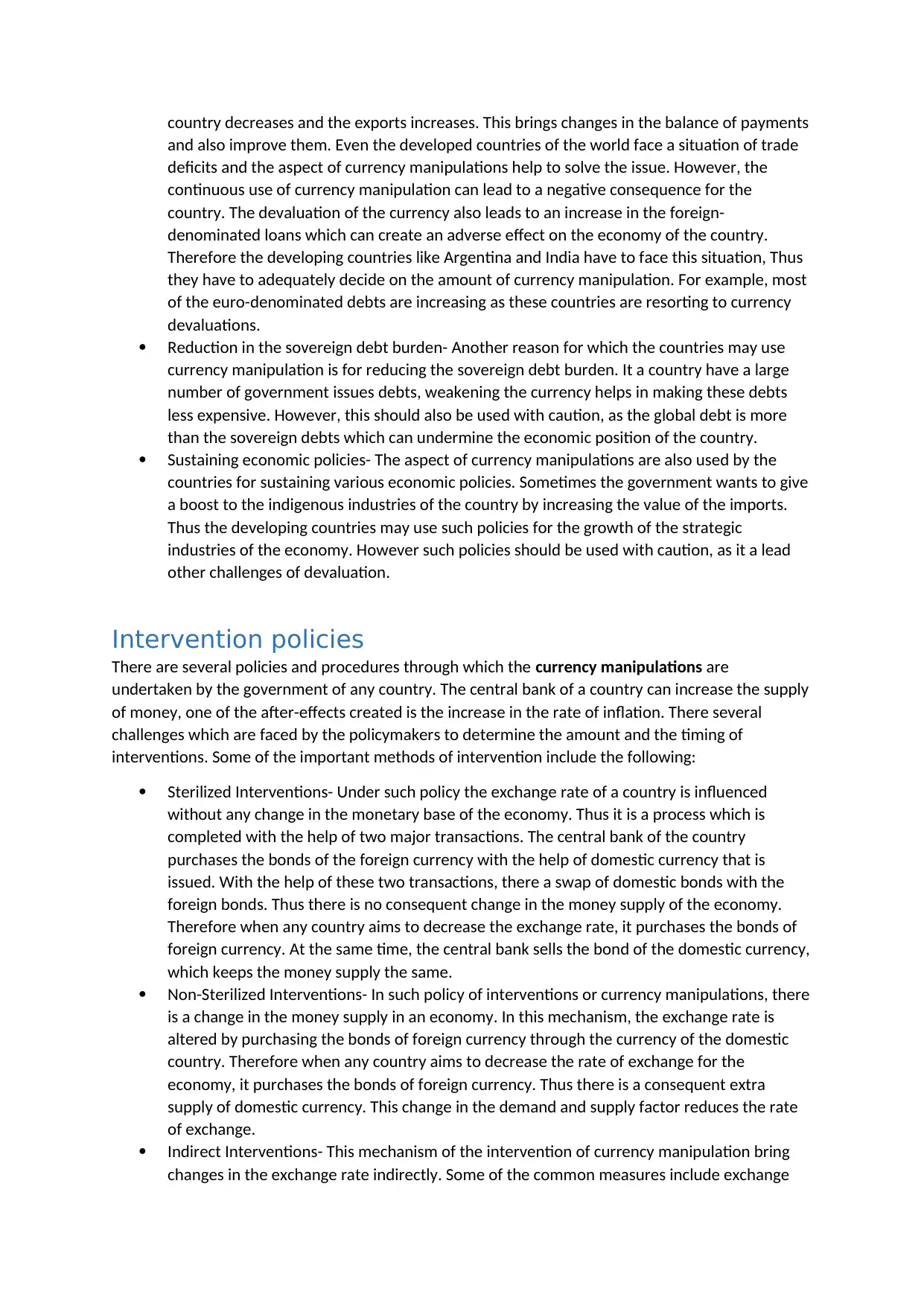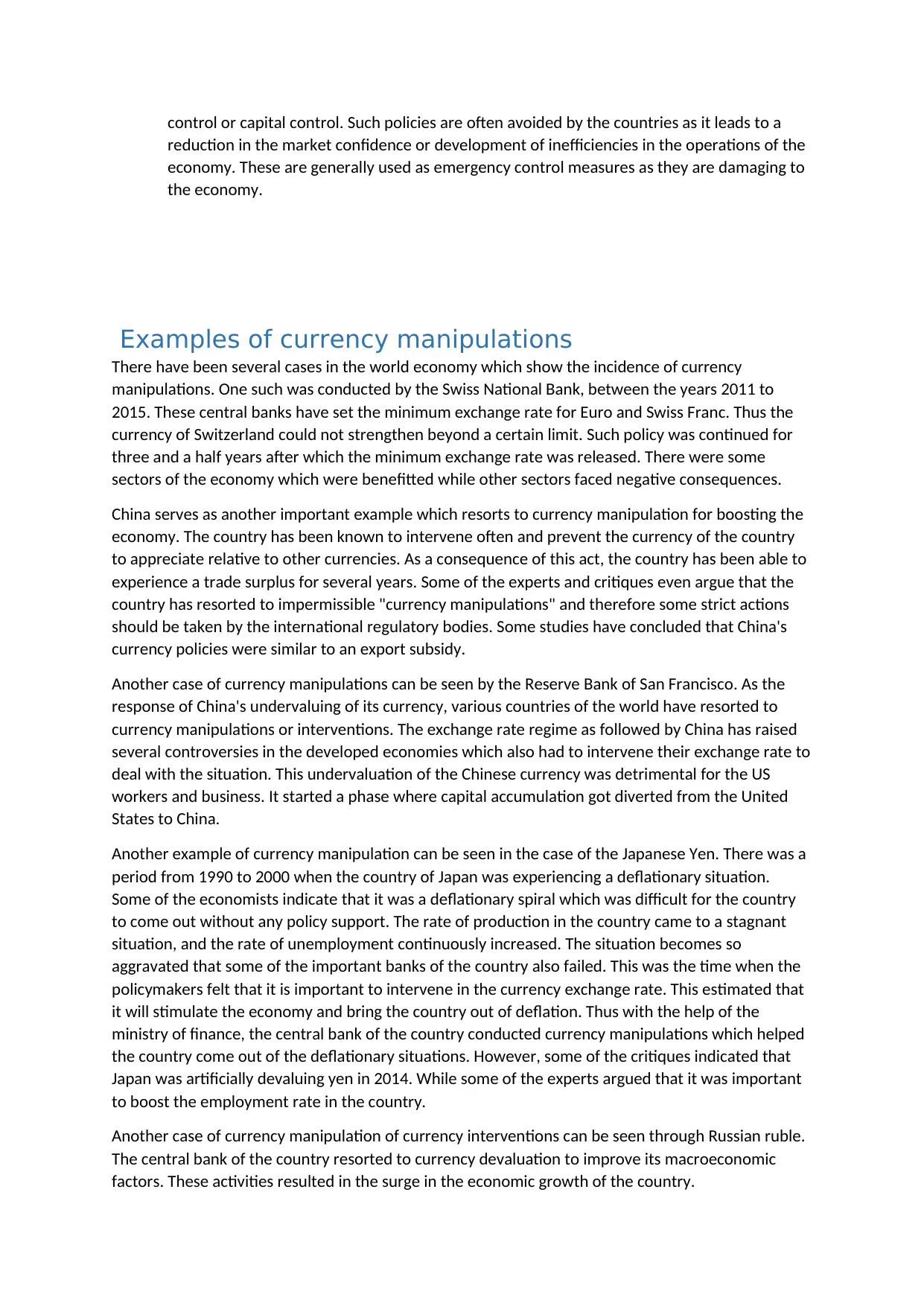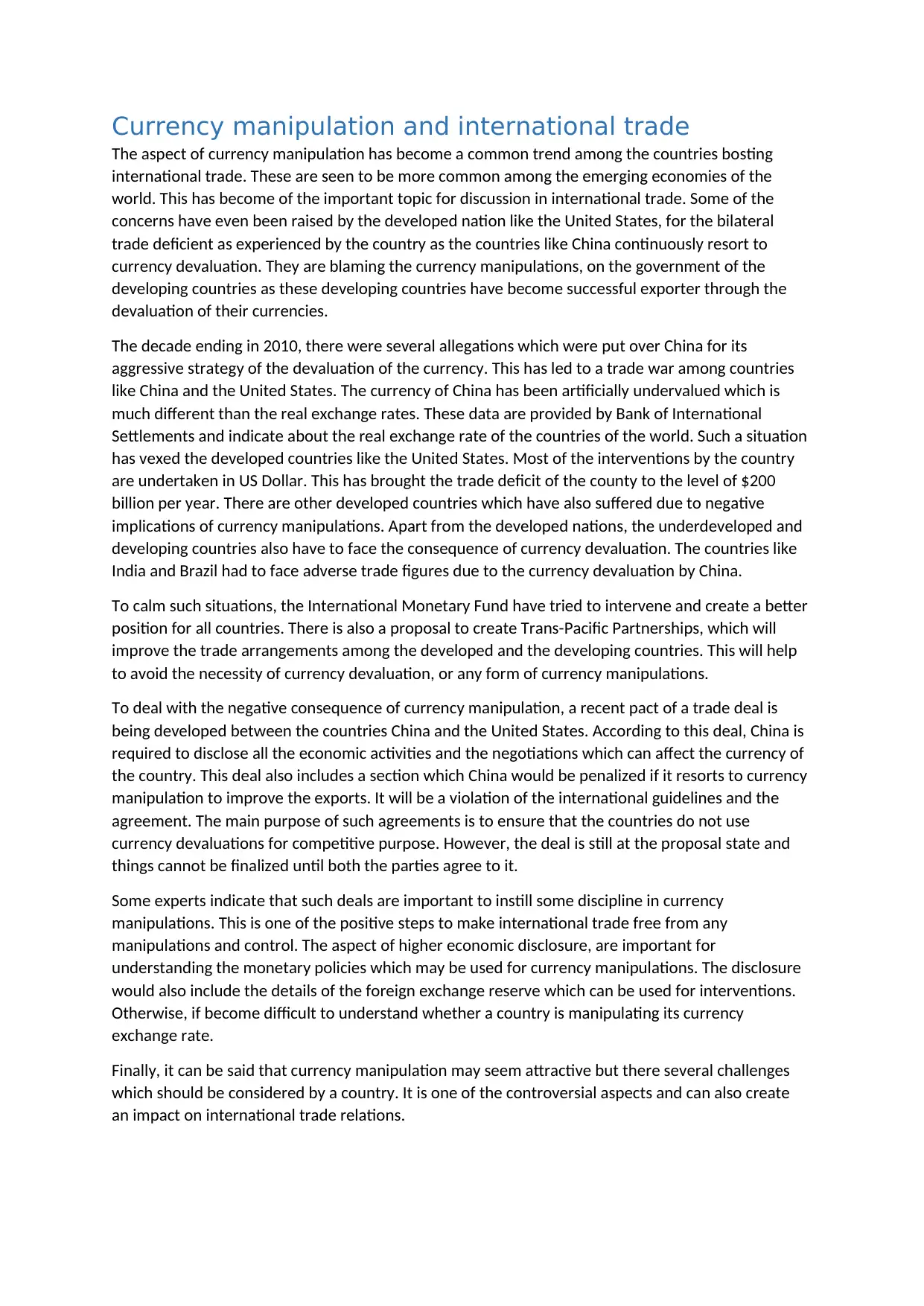Currency manipulation refers to the intentional alteration of a country's exchange rate or monetary policy by its government or central bank to achieve economic goals, such as boosting exports or improving trade balance. There are several methods of intervention, including sterilized and non-sterilized interventions, and indirect measures like exchange controls. Examples of currency manipulation include Switzerland's minimum exchange rate for the Swiss Franc, China's undervaluation of its currency, Japan's currency devaluation in 2014, and Russia's currency devaluation to boost economic growth. The practice of currency manipulation has raised concerns among developed economies, leading to trade wars and calls for international cooperation and discipline.}
![[object Object]](/_next/static/media/star-bottom.7253800d.svg)
![[object Object]](/_next/static/media/star-bottom.7253800d.svg)

